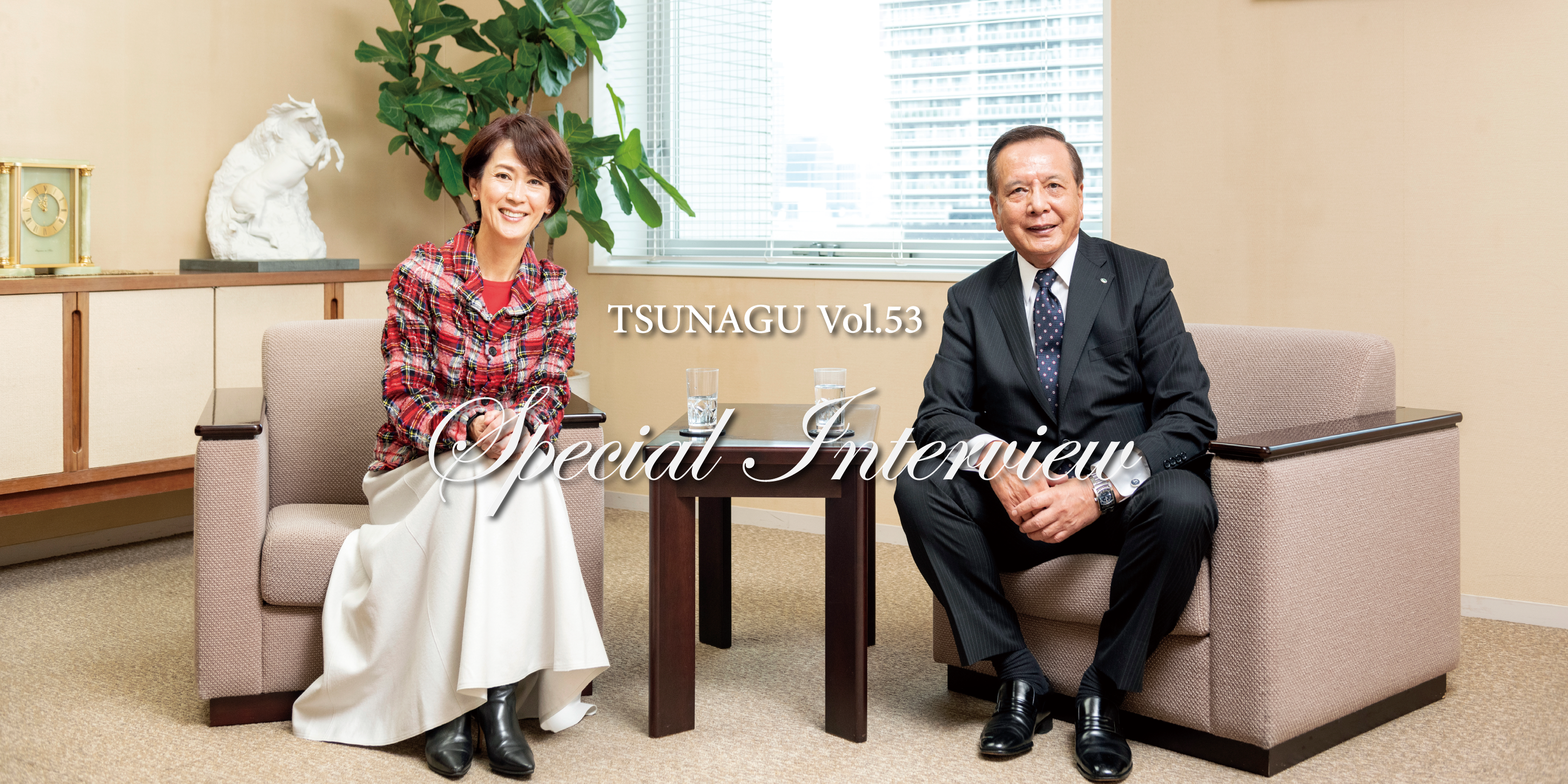
|
We arranged a special dialogue between Yuko Arimori, a remarkable Olympic athlete who won medals in two women's marathon events, and KPP GROUP HOLDINGS CO., LTD. Chairman & Chief Executive Officer Madoka Tanabe. The two draw on experience from the leadership positions they have held in their respective fields of sports and business to share communication techniques for facilitating smoother interactions when working in international settings. Together, they discuss advice for young business people looking to navigate the changing times. |
Yuko Arimori
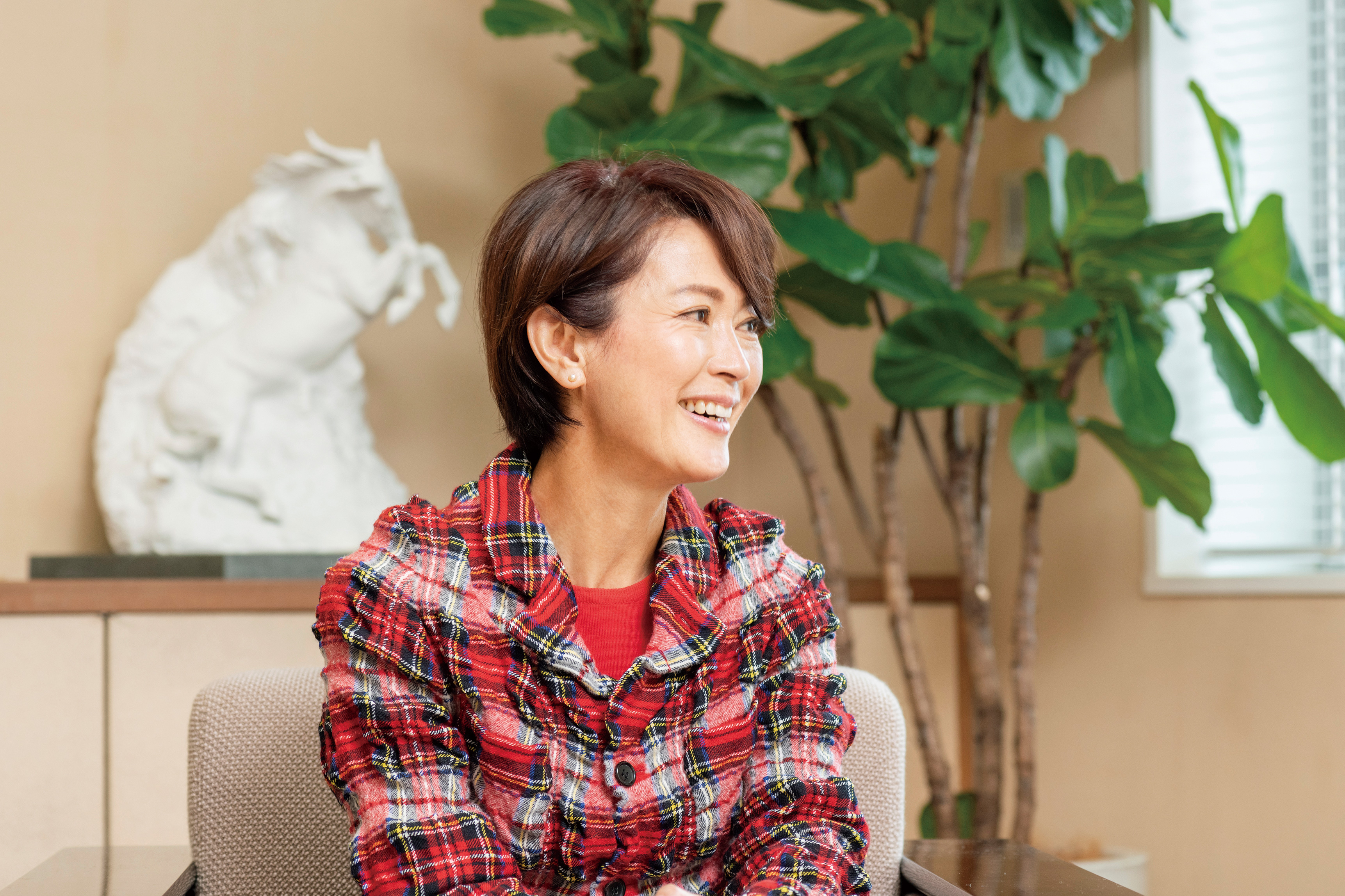
Originally from Okayama City, Okayama Prefecture. After graduating from Nippon Sport Science University, began work at Recruit Co., Ltd. Took home a silver medal at the 1992 Barcelona Olympics, becoming the first Japanese medalist in a women’s marathon event. Won a bronze medal at the 1996 Atlanta Olympics as well. Her post-race comment, translating to “For the first time ever, I feel like praising myself,” was selected as the winning phrase for the year’s Ryukogo Taisho (Buzzword of the Year) award. In 1988, Arimori established NPO Hearts of Gold, for which she serves as representative director. In 2007, announced her retirement as a professional marathon runner. Currently holds a number of key positions, including International Olympic Committee (IOC) Commission for Sport and Active Societies committee member, Special Olympics Nippon chairman of the board, Japan Association of Athletics Federations vice president, and Japan Association for University Athletics and Sport (UNIVAS) vice president. In 2010, became the first IOC Women and Sport Awards recipient from Japan.
—Arimori-san has made spectacular achievements as a trailblazer in the world of Japanese women’s marathon running, including taking home medals at two consecutive Olympics: a silver medal at the 1992 Barcelona Games and a bronze at the 1996 Atlanta Games. Chairman & CEO Tanabe, what kind of impression has she made on you?
Tanabe:As a spectator watching on TV, I was a supporter, of course. Arimori-san, I was so impressed by the way you pushed yourself beyond limits and just kept racing along. When you won the medal in Barcelona, that was the most remarkable achievement in many years in Japanese women’s athletics, wasn’t it?
Arimori:The most significant in 64 years.
Tanabe:For me personally, though, your win in Atlanta made an even deeper impression. The Japanese public had big expectations for you, and the whole country was moved by the comment you made right after you crossed the finishing line, “For the first time ever, I feel like praising myself.” In actually running both of those races, which did you find more grueling?
Arimori: There were more ups and downs in the Atlanta course, so it was more difficult. In Barcelona, there was a steep climb continuing for about 4 km in the final stage leading up to the Montjuïc hill, which was really demanding, but I think I was able to show off the work I’d put in with high-altitude training.
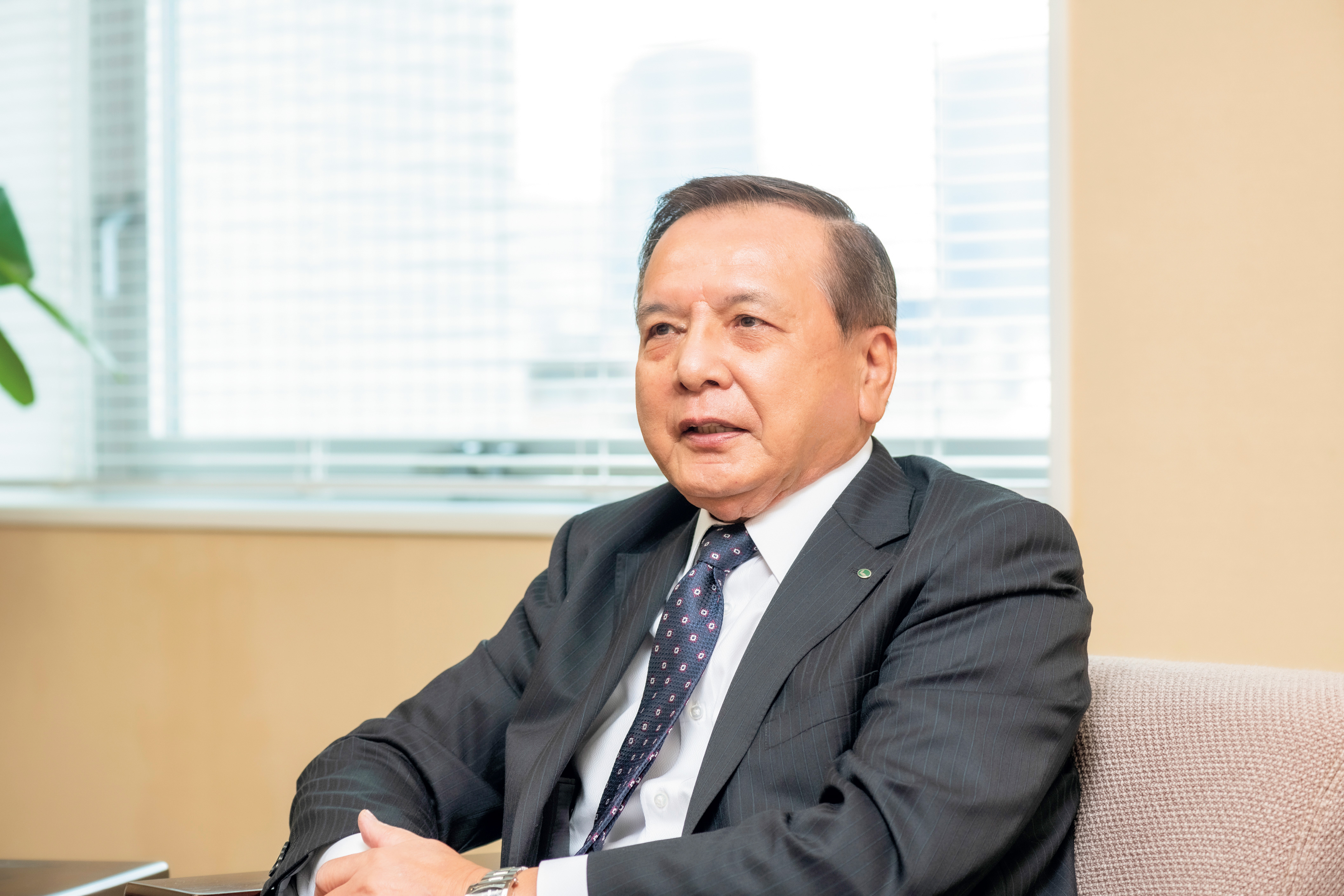
Arimori: The Tenmaya women’s athletics team was founded in 1992, and that came about after I took home the medal in Barcelona. I can tell you know a lot about sports. Have you been an athlete yourself?
Tanabe: I was really into rugby in high school. I even competed in the National High School Rugby Tournament at Hanazono.
Arimori: That’s amazing!
Tanabe: As an aside, in 2013, to commemorate the 50th anniversary of high school rugby tournaments being held at Kintetsu Hanazono Rugby Stadium, a match between Tenri High School and Hokkaido Kitami Hokuto High School was held, just like the championship game that had been held 50 years before. Old team members—mainly those who had been on the teams at the time—took part, and I played too, after spending a year getting back in shape. The match was even shown on TV. It really made for a great memory.
Arimori: Even with sports we do later in life, there’s a big difference between marathons and rugby, isn’t there? I think that’s really amazing.
—When Kokusai Pulp & Paper Co., Ltd. and Oji Fiber Co., Ltd. held their joint exhibition at the Sustainable Fashion Expo in October 2022, you appeared in an event showcasing OJO+, a product made from paper thread fibers, Arimori-san. It seems that you were already acquainted with Hiroyuki Shiraishi, the president of Oji Fiber?
Arimori: I was given some OJO+ socks before, and that was the beginning of our connection. They have a comfortable feel, so I still wear them sometimes, too. Marathons can require subtle adjustments, like with minor details of the stiffness of the sewing, and I haven’t had a chance to test them out in that way yet. As far as how they feel when I’ve tried taking them on walks, though, they adapted to my feet well. Besides that, I have an older brother who works in the paper industry, and he told me that he knows about OJO+ and actually loves wearing their products.
Tanabe: There were a number of different products made with OJO+ shown at the exhibition. Did any of them pique your interest?
Arimori: First of all, it came as a surprise to me to see so many products that could be made from paper like that. It made me really interested to know how it feels to wear items of clothing made out of paper. I’m also extremely curious about how their texture and feel might change over time.

Tanabe: What did you think of the OJO+ artificial turf?
Arimori: It really astonished me. You encounter synthetic grass pretty often at athletic sites, but the thing is, it really tends to get hot. With child-oriented programs, you want to walk barefoot on it or rest on it, but it just gets too hot for that. On that point, OJO+ synthetic grass seems like a safer option, since it doesn’t capture heat like that, and it has the characteristically softer, rounder feel of paper. I would feel safer letting kids come in contact with it. It seemed like a really ground-breaking product to me.
Tanabe: I hear you spent a good amount of time not only at the event but in the booth we presented. You didn’t have a hard time with all the visitors who came by?
Arimori: Oh, no, I was having too much fun myself! (Laughs) The OJO+ jackets and shoes were really charming, and I was amazed by the quality of the jeans. You’d never guess they were made of paper.
Tanabe: I’m really happy it was of so much interest to you.
For Help Achieving Goals, Approach Daily Work with a “Blueprint” to Guide You
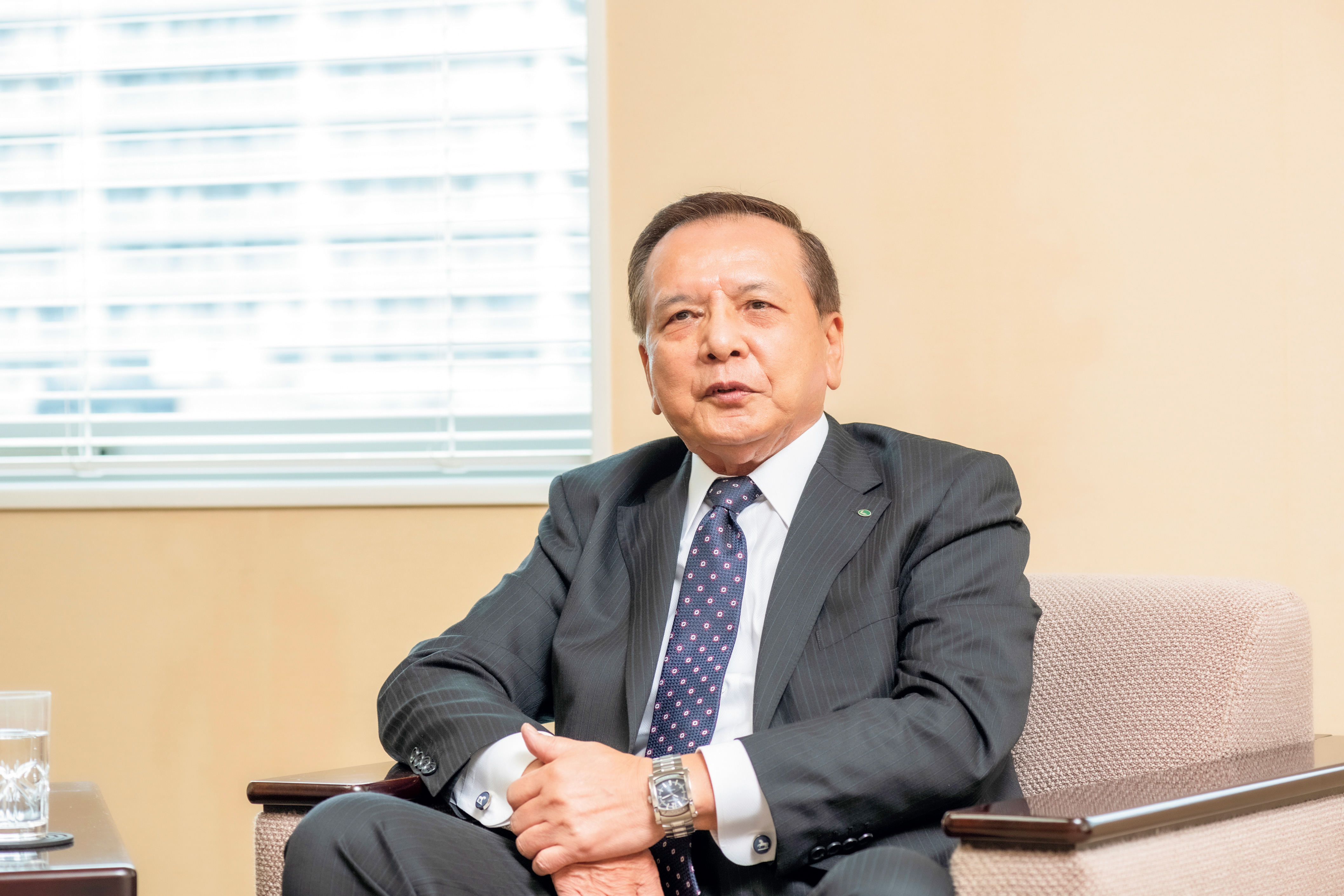
—Arimori-san, you started competing in athletics events in junior high school and put in untiring efforts to make your many triumphant achievements. Do you have any advice for young business people working in the KPP Group or other companies to achieve greater results in the future?
Arimori: Unlike marathons, where you put everything into the race for a certain period of time, work is something you have to continuously keep up on, isn’t it? Even still, the important common point the two share involves whether you’re able to be passionate in tackling the tasks at hand. I tend to think it might be crucial to bring your own way of thought and devotion into your approach to work. It’s in putting our thoughts and feelings into each job and task, and not simply completing work we’ve been assigned, that we come to attract others, I feel. With the things we use in marathons, too, if the sentiment of the maker isn’t reflected in something, it will become apparent with something like a little seam coming apart. Beyond that, the way my teammates and I were able to follow our coach Yoshio Koide up until the end the way we did was because he himself loved foot racing more than anyone. He adored it, and he was so passionate in the way he tried to convey its charms. That’s what made us able to put our genuine trust in him and follow him with such confidence. Here, I’m applying this to a different field, but I believe that this approach of incorporating your own thoughts, feelings, and goals in taking on things is similarly important.
Tanabe: There are points in common between the work those of us in the business world do and the marathons athletes run, undeniably. To finish a marathon, I believe, you have to run 42.195 km, and on top of that, you probably need to have a “blueprint” worked out. You have to consider strategy, taking into account hill climbs and descents on the course to work out lap times and how you’re going to respond to other contenders’ approaches, right? If you take off running without a plan in mind, you might end up with a leg cramp or not get your proper water supply and fall short of the finish line. The same applies in business. In my view, it’s very important to work out a blueprint for achieving goals from a long-term perspective and be mindful in engaging with the work at hand that needs to be done. There are about 5,400 people working for KPP Group Holdings around the world, and I feel it’s essential that we are all looking at a common “blueprint” and sharing the same sense of values.
Seek Understanding Rather than Agreement in International Settings
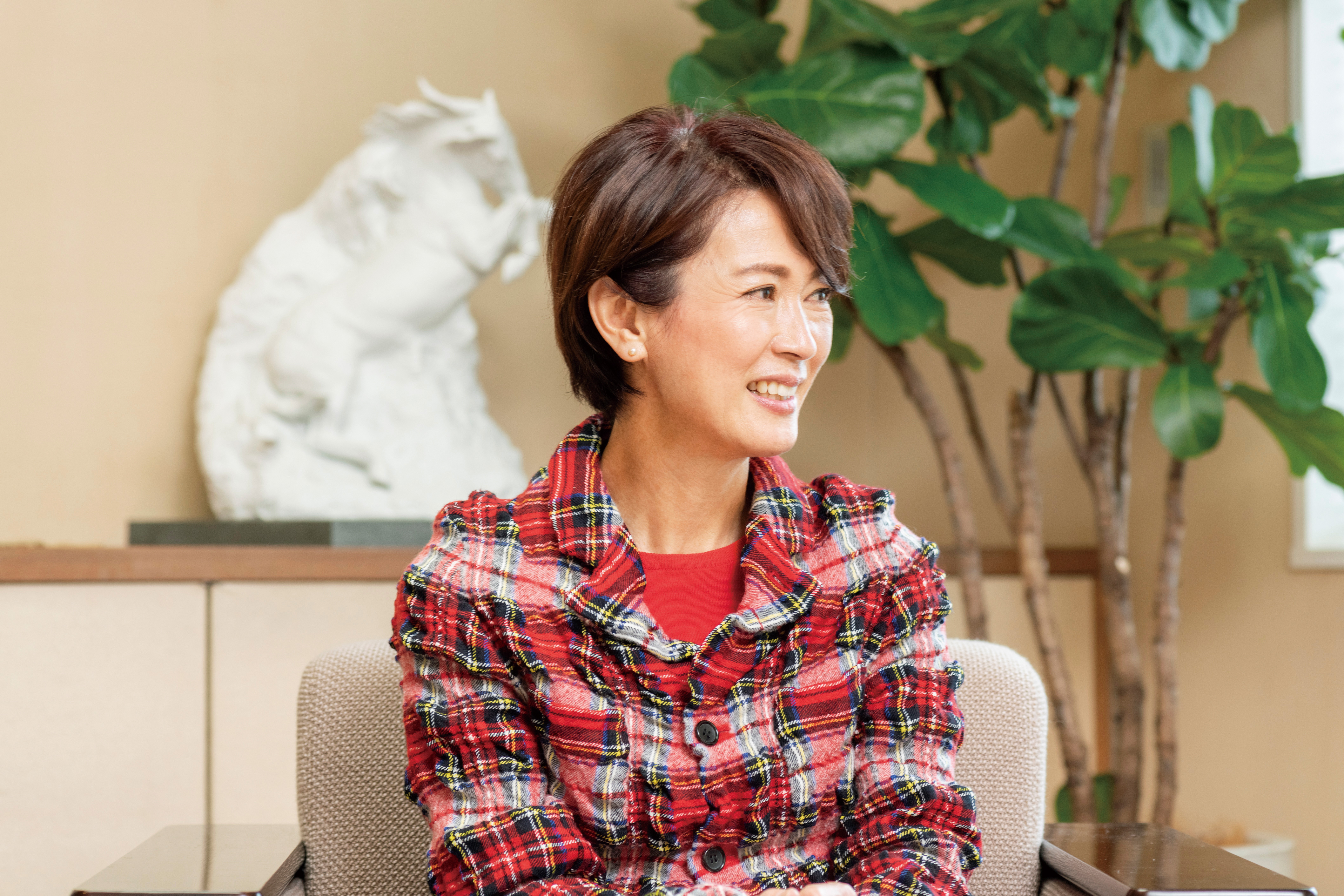
—As a global corporation with locations in 147 cities in 45 countries, KPP Group Holdings has a need for human resources that will enable further active participation in the global arena. Arimori-san, you’ve served in key positions for a range of international organizations, including as a United Nations (UN) Goodwill Ambassador and International Olympic Committee (IOC) member. What sort of things have been helpful to you in overcoming differences in language, culture, or values and establishing good communication?
Arimori: I know this is challenging for a lot of us from Japan, but I think it’s hard to be active and successful abroad without self-promotion skills. You will end up with fewer chances if you’re not able to hold your own views and also be able to express them. One thing I’m always conscious of is looking people in the eye when I talk to them. I tend to think it helps you get across what you want to convey to people and also makes them feel like finding out more about what you have to say. Also, it’s important not to seek agreement from them. If you seek agreement from someone who has a different value system than your own, it creates a rift between you the moment they feel that they don’t see it the same way. That’s why I’m conscious of trying to seek their understanding instead. If you take a one-sided approach and try to impose your ideas on someone without appreciating that they have their own ways of thinking and their own history, you won’t be able to engage in deeper communication with them. I think it’s important to take an approach of hoping to convey things and not pushing your own views onto others.
Tanabe: It’s just as you’ve said, Arimori-san. If you’re not equipped with management skills with the ability to think and act on your own, it’s tough to take a role of active participation in the international arena, isn’t it? Besides that, environmental pollution has become a major social issue, but I also worry about “digital pollution” among younger people. Advancements in digital technology have made it possible to get shown the answer to a question so easily, with just the press of a button, but I feel that there’s great importance in the process and approach in making your way to the conclusion, as well. With that in mind, I hope younger people do also get to have plenty of experiences that have less of a clear point. That way, when they find their own strength within such experiences, it should give them unbeatable confidence with that niche.
—Thank you for all of this valuable advice. Finally, could you share with us your hopes and plans looking forward, Arimori-san?
Arimori: Sports can be really inspiring to people, and so I feel that by making a range of different commitments, I can play a part in effecting change in society as a whole. I plan to continue engaging in activities to be of service to society through my experience with sports. I’m also going to keep my eye on the future progress of KPP Group Holdings after being able to make this connection through OJO+.。
